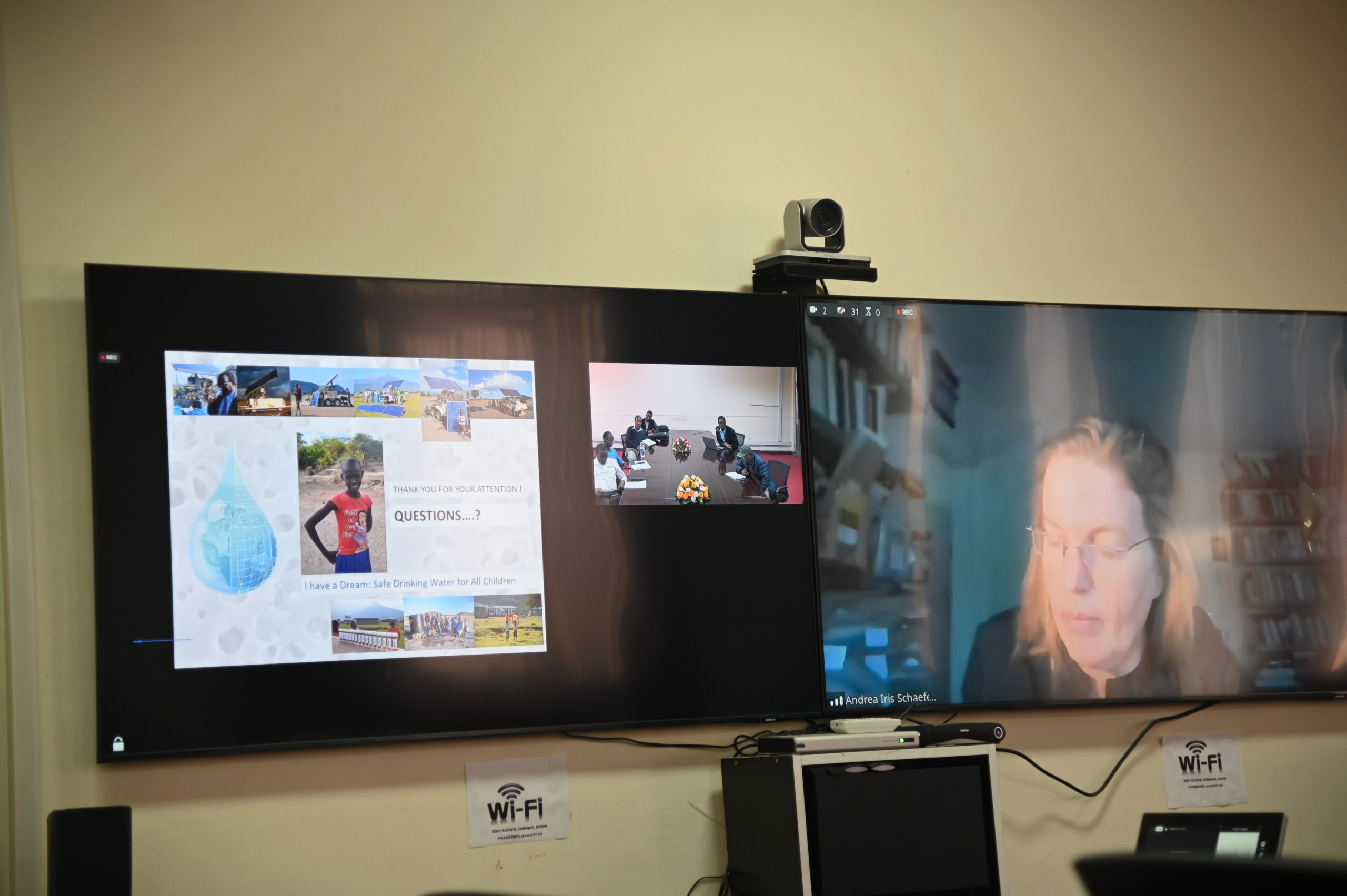A SEMINAR ENTITLED “MEMBRANE TECHNOLOGY FOR FLUORIDE REMOVAL: TANZANIA EXPERIENCE” WAS HELD VIRTUALLY.
On January 17, 2025, a virtual seminar focused on the crucial topic of “Membrane Technology for Fluoride Removal: Tanzania Experience” was held, drawing attention to the pressing need for effective water purification solutions in the region. The seminar, led by the esteemed Prof. Dr. Andrea Iris Schäfer from Karlsruhe Institute of Technology (KIT), Germany, showcased groundbreaking advancements in membrane technology aimed at addressing fluoride contamination in drinking water.
Organized by the Africa Center of Excellence for Water Management in collaboration with the School of Chemical and Bio Engineering at Addis Ababa University, the event virtually gathered experts, researchers, and stakeholders dedicated to enhancing water quality and public health across Africa.

During her presentation, Prof. Dr. Schäfer said Tanzania shows some of the world’s highest fluoride concentrations in natural ground- and surface waters. Located in the East African Rift Valley fluoride is abundant and contaminates water sources to an extent where regular dental and skeletal fluorosis are observed, she added.
According to Prof. Dr. Schäfer the development of bone char technology has been able to contribute greatly to providing safe water from the less polluted sources, while the national drinking water guideline has been elevated, compared to WHO, to be able to provide access to drinking water. Nevertheless, many water sources show very high fluoride concentrations that result in a rapid saturation of adsorption materials such as bone char.

Prof. Dr. Schäfer explained extensive field work carried out in Tanzania from 2012 to 2014. This include investigating a large number of water sources for fluoride and organic matter concentrations; carrying out fundamental studies into the removal mechanisms of nanofiltration, and conducting pilot studies with directly coupled photovoltaic powered nanofiltration to treat such waters and demonstrate the technology to a selected number of communities.

Prof. Dr. Schäfer revealed innovative membrane filtration techniques that have shown promising results in effectively reducing fluoride concentrations, making water safer for consumption.
The seminar facilitated engaging discussions, allowing participants to share insights, experiences, and potential collaborations to further this vital area of research and practical application. Experts emphasized the importance of sustainable and accessible water purification methods to combat issues faced by communities across the continent.

As the event concluded, there was a strong call to action for increased investment in research and technology development, as well as the implementation of successful solutions in real-world scenarios. This seminar not only shed light on the challenges of fluoride contamination in Tanzania but also inspired hope for effective technological solutions that can transform water management practices in Africa and improve the health and well-being of its people.

